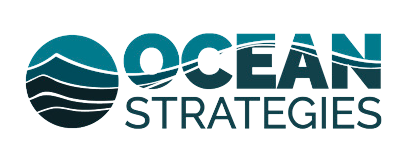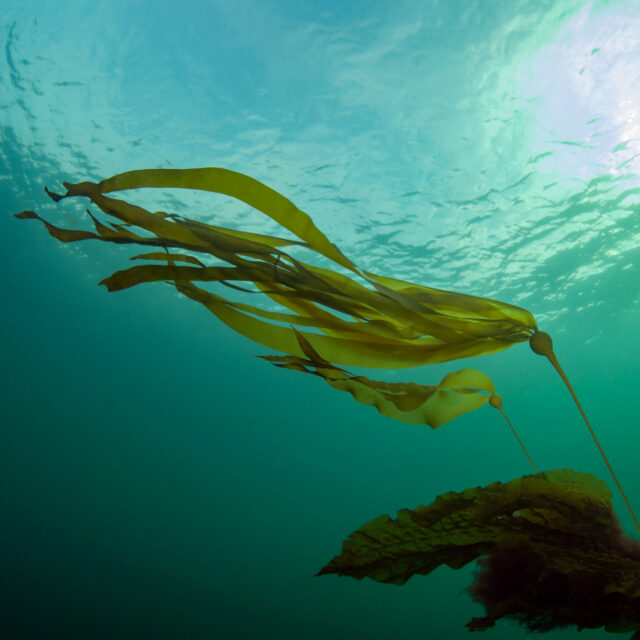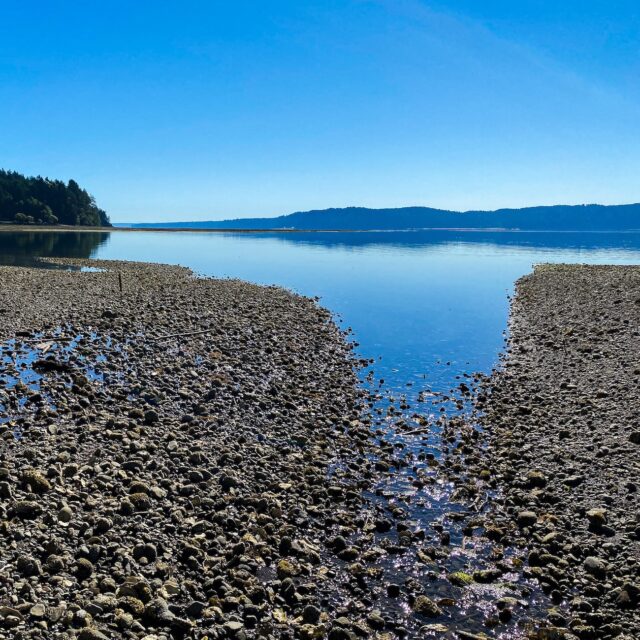MSA REAUTHORIZATION SUMMER 2021 POLICY REPORT
Ocean Strategies Principal and lifelong commercial fisherman, Brett Veerhusen, spoke with Representative Huffman (D-Calif.) about the Sustaining America’s Fisheries for the Future Act, a new bill that aims to update and reauthorize the Magnuson-Stevens Act. This Q&A with the Congressman is also featured in a special Ocean Strategies Fisheries Policy Report.
Click the image above to watch and listen to the full interview with Rep. Huffman.
Q: Congressman, thank you and I’m looking forward to diving in more on the Sustaining America’s Fisheries for the Future Act – which you introduced last week with your colleague Representative Ed Case from Hawaii seeking to reauthorize the Magnuson-Stevens Act. But first, we like to tackle the hard questions first. What’s your favorite seafood to eat and why?
A: Wow, that’s a wonderful dilemma because there’s so much good seafood out there! Even though I represent a lot of salmon fishermen, I have to say halibut. You can cook halibut in every possible way. It’s a versatile and delicious fish.
Q: I love halibut too because it’s firm but flakey and you can cook it almost any method. Alright, back to Magnuson. You held 8 listening sessions around the country with a variety of stakeholders, including commercial & recreational fishermen, tribal representatives, environmental NGOs, supply chain representatives and more. What was the biggest common concern shared amongst these folks, and how does this bill address it?
A: One thing we heard loud and clear from every stakeholder community is the need for better data and better science in order to make decisions — everyone agreed on this.
Climate change was also something we heard every place we went, but what we heard differed. In the Gulf of Maine for example they’re seeing more stock shifts than in any other American fishery zone — they totally get that we have got to tackle this problem. Original MSA language and regional Council framework didn’t even contemplate this and there’s no mechanism or directive to include it in current Council work. We’re trying to move all Councils forward into this climate-ready fisheries paradigm and that will look different in each region.
We were talking earlier about Bristol Bay — one of the takeaways if we’re going to have climate-ready fisheries is that we have to identify our fishery strongholds and Essential Fish Habitat, and have meaningful tools to protect those things. We are going to need more protections for fisheries and habitat going forward if we are going to adapt and get through the climate change that is coming.
One of the provisions in the new MSA is to provide a meaningful consultation requirement when EFH is threatened by any type of project, whether that’s Pebble Mine or offshore wind. I want to see offshore wind happen and succeed but we really need to make sure that our fishery managers and fishing communities are at the table.
Q: Getting better data and understanding impacts from climate change all require important funding. Under MSA, federal fisheries management is driven by scientific and stakeholder-driven processes, so how can we fund better science and data to incorporate climate change within fisheries management?
A: We are definitely going to have to step up the funding side of this. We can talk about the need for more science and data but at some point this does cost money. I will do my best as we reauthorize Magnuson to put the best statute on the books. But we will need our partners to help us get dollars on the table annually and make it work.
It’s critical in having as much unity as possible within the fishing community so that that coalition can then go to appropriators and get those dollars. If the fishing community is just a circular firing squad and we’re constantly fighting with each other, it’s going to be a lot harder to get the resources we need.
Q: As far as specific provisions the bill makes a variety of changes that enhance specific management practices — rebuilding plans, data collection and accountability, habitat protections, and bycatch reductions. Let’s zoom in on that last one, as an example of how this bill takes on management challenges. I’ve been a fisherman my whole life and understand the unintended harvest of some species is almost unavoidable, but we always seek improvement. The bill strengthens language to reduce bycatch. Why is this important?
A: Bycatch as you mentioned is something that is inevitable in most types of fishing. We haven’t made the kind of progress on bycatch reduction that we need to make. If you think of the productivity of our oceans and the demand for seafood, we really can’t afford to have huge levels of bycatch. It’s terrible for the ecosystem, it’s wasteful, and if we’re going to be catching these fish we need to get them to market and find a way to actually use them. So all of these factors compel us to do more. We’ve had a lax approach to bycatch reduction over the last many years.
Q: You mentioned the need for supply to meet demand. The Covid-19 pandemic accelerated seafood consumption and demand within the United States. In fact, domestic retail seafood sales continue to rise at a faster pace than beef, chicken and pork. Additionally, the FDA is now recommending that all Americans, including children and pregnant women, eat more seafood than we currently do. How does an updated MSA support this healthy increase in America’s seafood consumption?
A: In several ways, the most important of which is making sure there are sustainable American fisheries to provide seafood, so we’re not importing mystery seafood. We’re separately legislating on this scourge of illegal and unauthorized fishing, IUU fishing as it’s referred to. It’s a huge problem — we import billions of dollars a year of mystery seafood into this country. When you don’t have transparency and traceability, odds are whether you like it or not you’re contributing to really horrific environmental practices, human trafficking, and slavery on the high seas, all sorts of awful conditions that are part and parcel of fishing fleets in some of these other countries.
It’s a one two punch — helping our domestic fishers be successful and productive, and have sustainable harvests year in and year out, and also leveling the playing field by cracking down on these bad actors and getting at the problem of traceability and the nebulous nature of a lot of our seafood importing.
Q: The bill also includes support for working waterfronts infrastructure — through both funding and a new task force at the Dept. of Commerce. How do infrastructure improvements coincide with your vision for a Magnuson reauthorization? How does that support sustainable food production?
A: This is another way in which we need to support and sustain U.S. fishers. In many places, the infrastructure that they depend on has decayed. I think about up and down my district, just the refrigeration side is a mess. There are so few places where there’s good refrigeration in dock facilities; everything they need is in disrepair. This is important not just for fishers, but for everybody that is connected to working waterfronts — the folks that make their living on the water and the whole seafood supply chain. The investment in our fishers and the best management in the world will be rewarded by cracking down on IUU fishing practices on the high seas and imports.
A related provision is to modernize the fishery disaster relief program. We will continue to see more fishery disasters due to climate change. My salmon fishers in California know about that all too well. You shouldn’t have to wait two years or more to get disaster relief when you’ve been unable to make your living. It’s currently such a slow and unresponsive system. So we do include provisions to set those timelines and move the money out to those affected. Hopefully that will be another way to sustain the industry.
Q: Passing a bill is no easy task and we know there needs to be broad momentum and consensus in both the House and Senate to pass an MSA reauthorization. What do you see as the path forward for your bill and how should people weigh in going forward?
A: It’s hard to pass an act of Congress in the best of times let alone right now, because our politics are so fractured and dysfunctional. Marine fisheries used to be non-partisan, so my hope all along is that if we put in place a really honest, transparent, and inclusive process that maybe we can get back to that non-partisanship.
So far, at least in the stakeholder community, I see reason for optimism. People appreciate the way we’ve approached this. Many of my Republican colleagues have told me they appreciate it too.
I don’t yet have any Republican co-sponsors on this bill but I’m not giving up on getting them. None is more important than Don Young of Alaska, one of the original authors of the Magnuson-Stevens Act — he’s a hugely important part of this policy space. I have gotten a lot of feedback from him and I have made changes to the bill to try and address his concerns and suggestions. We’ve still got a few things to iron out but I’m not giving up at all on going shoulder to shoulder with Don Young because it will become much easier to push something through the Senate.
Q: Before we close Congressman, is there anything else you’d like to share?
A: The bill is in print, that’s the second step. The first was the listening tour with all the feedback we got back, and then a discussion draft that circulated for months while we took more input. The bill will be moving forward to a hearing sometime in September or October. As it goes forward that doesn’t mean the opportunity for feedback is over. We continue to welcome folks’ thoughts, we want this to be inclusive and to find as much consensus as possible, so stay tuned and hopefully keep working with us. It’s important that we reauthorize this bill. Even though it’s a broadly popular law, when you don’t have that reauthorization there’s less political impetus for appropriators to put those dollars on the table, and for agencies to request budget allocations for programs in a law that is expired.
Let’s get this thing reauthorized and we’ll fine tune it and modernize it along the way and I think that will be a really, really good thing for the fishing community.




